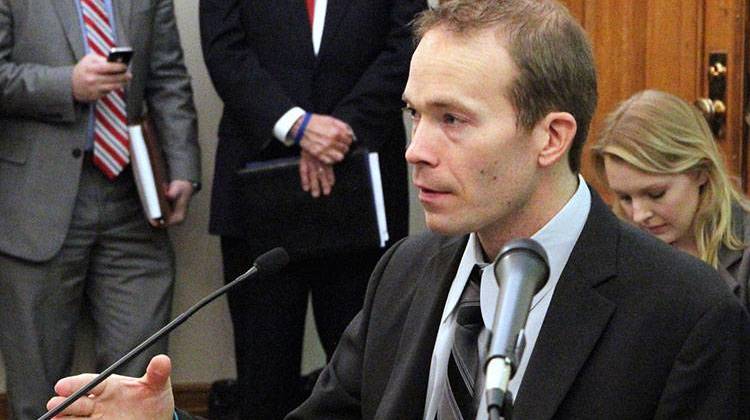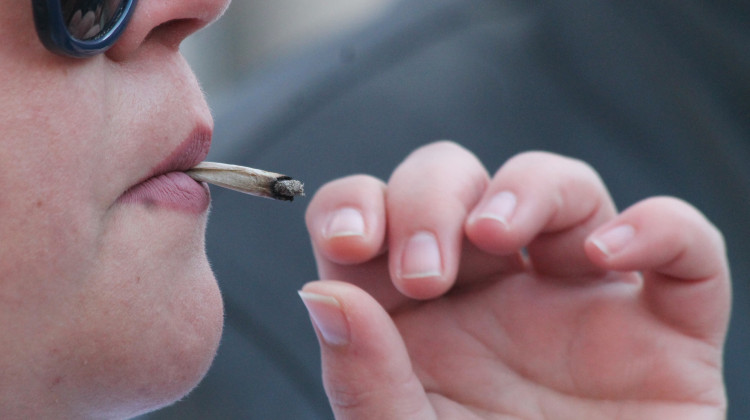
Chris Leeuw, a spinal cord injury survivor, testifies Wednesday before the Senate Health & Provider Services Committee about funding treatment for similar injuries.
Photo by Jess Seabolt, TheStatehouseFile.comINDIANAPOLIS — Chris Leeuw was left paralyzed from the shoulders down after breaking his neck in a swimming accident in 2010.
He spent the standard number of insurance-assisted weeks in rehabilitation, was discharged, but still required constant care.
Leeuw moved cross-country to Utah, where he received daily care at Neuroworx, a private facility that costs upwards of $400 per hour.
On Wednesday, he walked into the Senate Public Health Committee and testified for a bill that would change the way individuals would receive traumatic injury treatment – and length of time they can get that treatment.
Senate Bill 166, authored by Sen. Pat Miller, R-Indianapolis, would allow the pre-existing spinal cord and brain injury fund to be used to fund facilities, treatment and services for traumatic injuries. It passed unanimously and is headed to the full Senate for consideration.
Leeuw told the committee that even though injuries vary by individual, there is one constant — the need for long term, continued care to come to Indiana.
“These injuries require an incredible amount of extended rehabilitation and wellness programs for lifelong wellness,” Leeuw said.
Under current law, $1.6 million of the fund can be used for spinal cord and brain injury research. There is $4.8 million total available in the fund, and SB 166 would allow the board to give grants for specialized rehabilitation and wellness programs.
“The future of neurological recovery relies on research, but it also relies on putting long-term programs in place outside the boundaries of traditional care,” Leeuw said. “This bill puts the board in the position to address both.”
The state’s recovery program has two phases, in-patient and outpatient, and is limited in the amount of time spent in care.
The bill would allow for a four-stage process to be created, including extended rehabilitation care and long-term health and wellness.
The latter, Leeuw says, is critical “for those who didn’t fully recover and have to live with the injuries on a daily basis.”
NeuroHope, a company Leeuw and his family have launched with the goal of providing long-term rehabilitation, is helping to change the paradigm of recovery for the disabled in Indiana
The program is described on its website as “devoted to better the lives of those already living with paralysis by offering specialized, activity based wellness programs.”
Leeuw applauded Indiana for recognizing that traumatic injury needs to be addressed. He urged lawmakers to expand how the fund can be used in order to change the way traumatic brain and spine injuries are treated in the long run.
SB 166 passed committee 11-0.
Ashley Shuler is a reporter for TheStatehouseFile.com, a news website powered by Franklin College journalism students.
 DONATE
DONATE






 View More Programs
View More Programs


 Support WFYI. We can't do it without you.
Support WFYI. We can't do it without you.